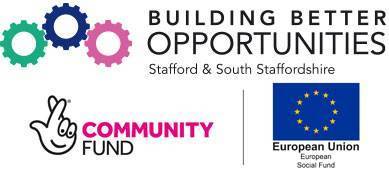How far back should a CV go? CV Writing
Your CV is a summary of your skills, qualifications and work experience that you send to an employer or recruiter in response to a job advertisement.
If you have quite an extensive work history, then you may be wondering how far back you should go on your CV.
While there is no concrete answer to this, there are some guidelines you can follow to help you structure your CV.
How Far Back Should You Go On Your CV?
Typical CVs will detail work experience history in chronological order. That means your most recent job or work experience placement goes first and your oldest goes last.
Generally, recruiters like to see a full work history with any gaps in employment explained. However, if you have been working for 10+ years and have held multiple roles, this can cause your CV to span more than the recommended two or three pages.
Here is some advice to help you decide what to include in your CV, what not to include in your CV, and how far back you should go.
Consider The Job You’re Applying For
First of all, take a look at the job description and person specification you’re applying for. Both of these should tell you what skills the employer is looking for and what kind of person they want for the role.
When you’ve got a list of all the things you need to show on your CV, cross reference this with your work history. What is relevant and what isn’t?
As a general rule, you should expand on the relevant job roles and work experience you have and just stick to listing any positions that aren’t relevant or won’t help you to meet what’s stated in the job specification.
Combine Roles At The Same Company
If you have held multiple positions in the same company, combine them into one entry on your CV rather than list each one separately. Then, clearly outline relevant responsibilities and achievements during this combined time period.
Doing this will avoid a lengthy list of potentially similar job roles within the same business. Just be sure to use the job description and person specification to show this experience meets the requirements!
Avoid Leaving Gaps In Your Work History
If you have had quite a few jobs throughout your career, it can be tempting to leave some off, especially those that don’t feel relevant. However, when you do this, you’ll end up with gaps in your CV which may be hard to explain.
Our advice would be to list all positions you have held to show full work history, but don’t go into detail if they are not relevant. The name of the company, your role and the month/year you started and finished there should be enough and will avoid leaving unexplainable gaps in your CV.
If you have been out of work for a period of time, be sure to explain this in your CV. For example, if you had a baby or took a break to raise your children until they started school, mention it. Employers don’t mind gaps in employment if they are explained. However, unexplained gaps may give them pause for thought.
Create A Skills Focused CV
If you have a lot of work experience that’s not relevant to the role you’re applying for, you have hardly any experience or are looking to change careers, a skills-based CV is a good option.
With a skills-based CV, rather than drawing attention to your work history, you highlight your transferable skills instead. To create this type of CV, you should use the job description and person specification to pinpoint the most important skills and use the STAR (Situation, Task, Action, Results) method to evidence these skills. This way, you can use experience not just from work but from training courses, voluntary work and internships, school and/or college.
It’s recommended that you still include your work history and education in this type of CV, but you can list this at the end rather than immediately after your personal statement.
Get CV Help From BBO in Staffs
If you are unemployed and live in Stafford or South Staffordshire, we can help you to create a CV and assist you in looking for work with our free Employment Support services. As well as this, if you need any support with finances, or would like to develop professional skills or become more confident, we can connect you to training opportunities too! Alternatively, if you’re experiencing any barriers to work, such as lack of confidence or mental health struggles, our team can help you to create a personal development plan to overcome these things and achieve your goals.
For more information, simply contact us. Our friendly Advocates work with you towards your own personal goals in order to strike a happy and harmonious work-life balance.
